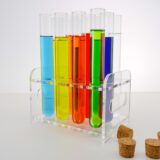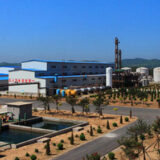
LANXESS expands plant for sustainable light-color sulfur carriers
Specialty chemicals company LANXESS has successfully completed an expansion of its production capacity for sustainable light-color sulfur carriers by several kilotons. The project, which involved an investment in the double-digit millions, was finalised at the Mannheim, Germany, site within approximately two years. The increased production volumes will be available starting in 2024.
Sustainable sulfur carriers refer to environmentally friendly substances or materials used to transport or deliver sulfur in various industrial applications, particularly in the production of lubricants and other chemical products.
“Sustainability is increasingly crucial for our customers,” said Neelanjan Banerjee, head of the LANXESS Lubricant Additives Business (LAB). “Our sustainable light-color sulfur carriers are precisely what the market needs, and they position us to further strengthen our role in the extreme pressure additives sector.”
LANXESS offers a wide array of extreme pressure additives under the brand names Additin EP and Scopeblue Additin EP. These products are highly effective in minimising wear on metal surfaces and preventing cold welding. They find applications in metalworking fluids, greases, gear oils, and slideway oils.
Most Additin EP products are environmentally friendly, derived from locally sourced, renewable raw materials like rapeseed oil and its ester derivatives. LANXESS has marked the variants with more than 50% sustainable raw materials under its sustainability brand, Scopeblue.
Eco-toxicological profile
Additin EP and Scopeblue Additin EP additives boast an advantageous eco-toxicological profile. They deliver exceptional performance even at high machining speeds and in demanding metalworking processes. These additives are effective alternatives for formulators looking to replace substances like medium-chain chlorinated paraffins, which the European Chemicals Agency (ECHA) has classified as Substances of Very High Concern (SVHCs) due to their environmental persistence and high bioaccumulation potential.














